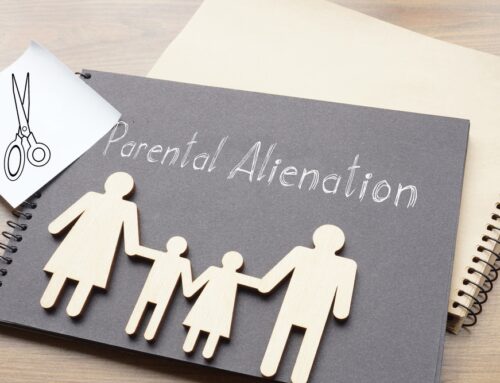Separation and divorce can be difficult for any couple. However, it can be particularly complicated for those who have been in a long-term cohabiting relationship. Cohabiting couples are not married, and therefore they do not have the same legal protections and rights as married couples. There are many legal and financial issues that can arise during the process of separation. This means it’s important to have a solicitor by your side during this time.
At Beeston Shenton Solicitors, we have extensive experience in helping unmarried couples navigate the legal complexities of separation. But what potential problems should you consider when separating after long-term cohabitation?
UK Law
First, it’s important to look at the law surrounding cohabiting couples in the UK. The law in the UK is different than it is for married couples. Couples who are not married do not have the same legal rights as those who are. This can create significant issues when it comes to separating. For example, unmarried couples do not have an automatic right to property division in the same way that married couples do.
Property Rights
One of the biggest issues facing separating cohabiting couples is the property and how this is divided. Unlike married couples, cohabiting couples do not have automatic rights to each other’s property. Regardless of how long they have been living together.
Instead, the ownership of any property will depend on the legal title and the contributions that each party has made to it. For example, if a property is in one person’s name, the other person may not have any legal right to it. Yet, if the other person has made significant contributions towards the property, such as paying the mortgage or carrying out renovations, they may be able to make a claim for a share of it. Issues can also arise if one partner wants to keep the property and the other partner wants to sell it and divide the funds.
One way of avoiding this potential issue when buying a property together, when not married, is to establish a cohabitation agreement. This agreement can outline how the couple will divide their assets if they separate.
Child Arrangements
Children are always a priority when a couple is separating, regardless of whether they are married or not. When a couple has a child or children together, then there needs to be a decision on who will have custody of the children.
Unlike married couples, cohabiting couples do not have automatic parental responsibility, which can make this process even more complex. This can be particularly difficult if one partner has been the primary caregiver and the other partner has been working full-time. Yet, if the couple cannot agree on the arrangements for the children, they may need to go to court to have a judge make a decision for them. This can be a stressful and expensive process. Therefore, it is important for both partners to try to work together to reach a decision that is in the best interests of their children.
Again, the solution to this issue is to establish a cohabitation agreement or seek legal advice. In most cases, it will be in the best interests of the children for the parents to agree on a shared parenting plan that outlines how the children will spend time with each parent.
Dividing Assets
One of the biggest issues with separating after a long-term cohabitation is dividing assets. When a couple is married, there is a legal framework in place to help divide assets fairly. But, when it comes to cohabitation, there is no such framework. This means that dividing assets can become a contentious issue, particularly if one partner feels that they have contributed more to the relationship.
Financial Implications
It is also important to consider the financial implications of separation. Unlike married couples, cohabiting couples do not have automatic financial rights. This means that one partner may be left in a vulnerable financial position after the separation. It is important for both partners to seek legal advice to ensure that their rights are protected.
When it comes to financial settlements, cohabiting couples do not have the same legal protection as married couples. This means that there is no automatic entitlement to financial support, such as maintenance or a share of pensions or savings. Instead, each party handles its own financial needs.
For example, if one partner has given up work or reduced their hours to care for children or support the household, they may be left in a difficult financial situation after separation. Similarly, if one party has significantly more assets than the other, the court may order a financial settlement to ensure that both parties are provided for.
In some cases, couples may have entered into a cohabitation agreement before they started living together. Then it may be possible to make a claim for financial support under the provisions of the Children Act 1989 or the Matrimonial Causes Act 1973.
Contact Us
In conclusion, separating after a long-term cohabitation can be a complex and difficult process. By establishing a cohabitation agreement or seeking legal advice, it is possible to resolve legal issues. Although if no plans have been put in place, ensuring a fair separation for cohabiting couples will require support and advice from a family law solicitor.
Get in touch with Beeston Shenton Solicitors via email at info@beestonshenton.co.uk or call us at 01782 662424.




